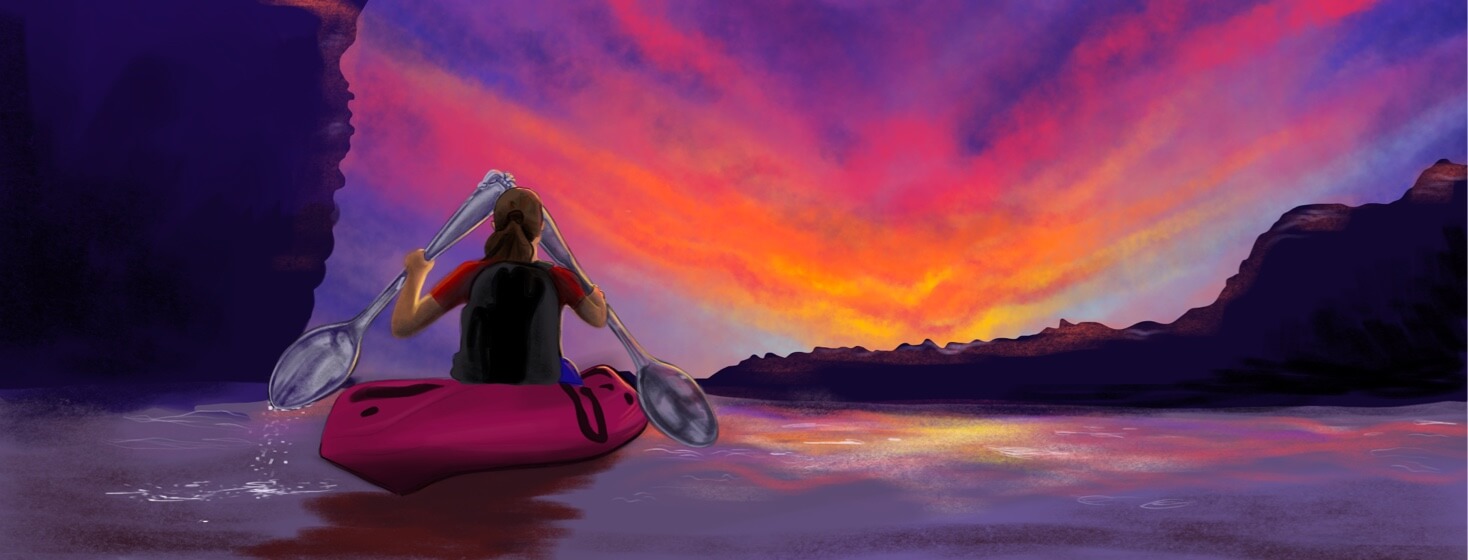Community Spotlight: First Descents and Its Programs for People With MS
We sat down to talk with Kristin McMaster of First Descents, a nonprofit that provides free outdoor adventures for young adults (ages 18 to 45) living with health conditions such as multiple sclerosis (MS) and cancer. Kristin describes the program and how people with MS can participate. This interview has been lightly edited for length and clarity.
What is First Descents, and how did it start?
First Descents was founded by Brad Ludden, a professional kayaker, over 20 years ago after having watched his aunt navigate breast cancer at the young age of 38. Brad was surprised by how few resources existed to support her through that journey. Inspired by this experience, Brad began volunteering for a pediatric oncology program teaching kids how to kayak. This inspired him to begin working on an organization that would soon become First Descents.
First Descents expanded its reach over the years to include young adults impacted by MS. We now offer surfing and rock climbing programs in addition to our white water kayaking programs. Program locations are scattered throughout the United States, including places like Moab, Santa Cruz, and the Blackfoot River.
How do you cater to those with disabilities on these excursions?
We use the Patient Determined Disease Steps (PDDS) scale to help participants self-identify their comfort level for each of our programs. The scale provides our team with a better understanding of each participant's mobility and ability. This then helps us match each person to the most ideal experience.
We are looking at everything through an accessibility lens, from the lodging to the activity to the transportation to and from the program. The PDDS scale helps us plan in advance with people so they do not face unexpected barriers to participating in our programs in a meaningful way.
How about for people using wheelchairs or walking devices?
Some of our trip locations are going to be more challenging than others for participants who use a wheelchair or walking devices. For example, a few of our rock climbing programs require an approach (dirt trail hike) to get to the rock wall that might require the participants to navigate over rocks and tree roots. But we also have other options where our group can drive right up to the climbing area and no hiking is necessary.
In a situation where a participant uses a wheelchair or a cane, we recommend they attend a program with an approach that works for their mobility level.
Our most accessible program is our Crested Butte, Colorado, rock climbing trip. We partner with the Adaptive Sports Center (ASC) in Crested Butte to offer a fully adaptable program. The ASC has a new lodge that was designed from the ground up to be fully accessible. All of the activities, including the rock climbing, can be adapted and are inclusive to everyone.
In addition to being able to pull the car right up to the climbing area, the ASC has adaptive climbing equipment (pulley systems) that allow someone who uses a wheelchair full-time to get on the rock wall. There are also a variety of solutions and equipment we can use to assist climbers who have lower levels of arm and/or leg strength and mobility.
How can someone participate?
The process begins by submitting an inquiry and then completing our application. This includes clearance from their medical provider. There are a limited number of slots available, and we have a lineup of MS programs throughout the year in different locations across the United States.
What is the planning like on the participant's end?
First Descents handles all the logistics when you arrive at a program, including transportation to and from the airport. Meals are provided by two on-site chefs who specialize in tailoring meals toward different dietary needs. We have hand-selected our lodges to ensure they are surrounded by the power of nature and allow for privacy to allow the group to bond.
Participants are given a packing list with basic gear they will need for the week. They are not required to have activity equipment such as a wetsuit or climbing gear. Participants are only responsible for booking and covering their expenses for travel to and from the designated airport. Scholarships are available on an as-needed basis to help cover this expense.
What can they expect from the experience?
People who come out on our week-long programs can expect to be cared for, eat delicious meals, be challenged and supported, and laugh. Most importantly, they can expect to find a community. Each FD program has roughly 15 participants, sometimes more and sometimes less.
Our programs are structured to incorporate plenty of time for the activity. But they also include downtime to restore, meditate, and enjoy the community of people who truly get what it means to have a serious health condition, such as MS, as a young adult.
Our programs have a wide range of participants, from folks who have never spent much time outdoors to those who are avid outdoor enthusiasts. There is no requirement to know the activity. That is part of what makes the experience so impactful.

Join the conversation